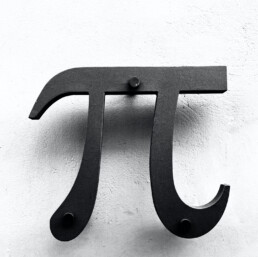1 in 2 Americans know March 14th is Pi Day – but only 1 in 3 know what Pi actually means.
Maybe it’s time for a Hallmark movie about the true meaning of Pi Day? The average American is more likely to know the date itself than the actual mathematical definition of pi.
That’s the takeaway from our survey of 1,005 respondents, more than half of whom (56%) correctly identified March 14 as the official date of “Pi Day.”
First founded in 1988 by Larry Shaw for San Francisco’s Exploratorium science museum, the holiday is now officially recognized by both the U.S. House of Representatives and the United Nations Educational, Scientific and Cultural Organization as the “International Day of Mathematics.”
Since then it’s become a beloved event in math classes across the United States, commemorating the closest numerical approximation of the never-ending number (3.14) with circular fruit pies and pi recitation competitions.

However, not everyone polled could remember the true reason for the season.
When given a list of options to choose from, only one in three respondents (37%) selected the correct definition for pi: namely, that it represents the ratio of a circle’s circumference to its diameter.
- Not surprising, given that 61% couldn’t remember learning about it in school.
- In fact, only one in seven (14%) recalled learning geometry at all, which is typically the subject where students first encounter pi.
- And only 10% could make it past the first six digits from memory.
Despite this, 70% of respondents believed their mathematic skills to be at least above average, with 39% claiming them to be “excellent.”
But it could be worse: 21% didn’t even know Pi day existed in the first place, which means they’re likely missing out on this year’s free pizza pie promotions at national chains across the country. And who says you don’t learn anything useful in high school?
This OnePoll online survey was conducted in March 2022, with 1,005 respondents. As members of AAPOR – the American Association for Public Opinion Research, OnePoll researchers adhere to the principles and actions set out in the AAPOR Code.
Photo credit: Image by Taso Katsionis on Unsplash.


